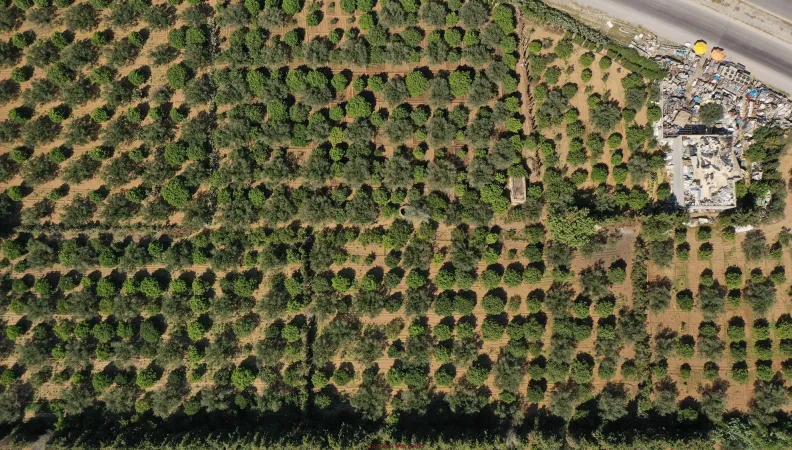Share the page
GEMMES Tunisia: Investigating the impact of hydric stress on agriculture, water cycle and the economy

-
Project start date
-
2018Status
Ongoing
-
Country and region
-
Partners
-
Tunisian Institute of Competitiveness and Quantitative Studies (ITCEQ), Ministry of Agriculture (Tunisia)
-
Research program
The GEMMES Tunisia project examined the impact of climate change on Tunisian agriculture in particular, and the macroeconomic impact of these changes in general, as well as the benefits of various adaptation policies to offset these impacts.
Context
Tunisia is particularly exposed to the impacts of climate change, on environmental, social and economic levels. Due to inappropriate agricultural practices, the availability of water resources has decreased, the salinisation process has worsened, and land and plant cover have experienced significant degradation. Since September 2018, the Tunisian Institute of Competitiveness and Quantitative Studies and the Tunisian Ministry of Agriculture have been working in collaboration with AFD on the development of a macroeconomic model within the GEMMES programme to make projections of agricultural yields until 2050 and to consider possible policies.
This project is part of the modelling work that integrates the impact of climate change into macroeconomic forecasts in order to inform public policy choices in this area. AFD is developing a general theoretical model on the one hand, and national models applied to concrete cases and adapted to the characteristics of each country on the other, including the GEMMES Tunisia model.
This partnership is carried out in the context of the memorandum of strategic dialogue between AFD and the Tunisian Ministry of Development, Investment and International Cooperation. This collaboration involves the joint production of studies, diagnoses and modelling tools to promote inclusive and sustainable development policies.
FIND OUT MORE ABOUT GEMMES
AFD and Macroeconomic Modelling Tools for the Ecological Transition
Objectives
The objective of the GEMMES Tunisia project is to analyse the macroeconomic effects of climate change on agriculture. By modelling development trajectories, it improves the understanding of the interactions between the economy and the environment, and helps inform public decision-making.
Aspiring to promote exchanges between researchers and political decision-makers, this project aims to place the issues of ecological transition and strong sustainability at the heart of political dialogue. It thus aims to become a tool at the service of the Tunisian authorities, by helping to evaluate the advantages of adaptation policies that could possibly be implemented.
Method
The GEMMES model is based on a trans-disciplinary analysis, which is able to take into account sectoral heterogeneity, whether in terms of market structures, access to financial markets or employment, as well as the structural imbalances inherent in a change as profound as climate change. GEMMES Tunisia is using this method to test different scenarios concerning the mechanisation of agricultural production, the improvement of agricultural practices and investment in water resources.
The GEMMES Tunisia project was divided into three phases:
- The first year was devoted to identifying the macroeconomic and ecological fragilities due to the impacts of climate change on agriculture and the water cycle.
- The second year focused on the construction of the macroeconomic framework and the choice of the agricultural model.
- The third year was dedicated to combining the macroeconomic model and the water cycle model by adding agricultural dynamics.
Research findings
The scenarios established by the GEMMES Tunisia model confirmed that the implementation of adaptation policies is necessary and desirable:
- The absence of such policies would lead to a significant increase in external debt, which would reduce the value of the national currency and thus the purchasing power of the population, while threatening the country's food security. Similarly, food inflation is reaching very high levels, which will have a massive impact on increasing poverty among Tunisian households.
- The benefits of sustainable development policies outweigh its costs by limiting the rise in rural unemployment, rapid urbanisation and declining per capita incomes. As an important result, the social and economic benefits of the adaptation policies envisaged for Tunisia are even higher if these policies are financed by low-cost foreign currency loans from climate funds, green bonds or international financial institutions. In this case, the adaptation policies have a much more beneficial effect and the costs of food imports put much less pressure on the balance of payments, food inflation, the exchange rate and thus the per capita income of Tunisian households.
Thus, the results of this project are in line with AFD's positioning in favour of strong sustainability.
This research project also highlighted the difficulty of quantifying the impacts of climate change in a context of limited data availability. Nevertheless, producing national models in this context has prompted research teams to test a greater diversity of scenarios or to gather different data sources, for example.
Download the research paper
Contact:
- Devrim Yilmaz, senior economist in the GEMMES Macroeconomic Modelling Unit, AFD



